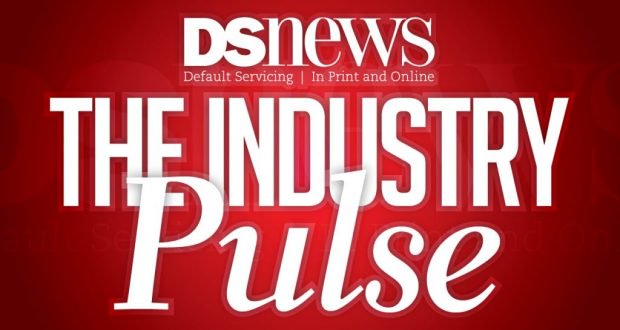What’s going to happen to interest rates when the RBA meets next week?
With speculation about interest rate cuts an almost daily event, it’s worth weighing the pros and cons of such an action and what the effects could be to our economy and property markets.

Most commentators believe the next move in interest rates is down, in fact the RBA has suggested that’s the next likely move, so will they take the plunge and cut rates next week?
It seems that the majority of commentators are suggesting they will, with some even predicting it could be the first of up to 4 cuts in rates.
Interestingly, there are both advantages and disadvantages to cutting interest rates, so what are the pros and cons for an interest rate cut?
That’s the topic of my Property Insiders discussion this week with Dr Andrew Wilson, Australia’s leading independent housing economist.
[embedded content]
Watch as we discuss the arguments for an against an interest rate cut
You’ll see us talk about:
- The latest CPI figures
- What is driving low inflation
- What’s the problem with falling prices or low inflation
- Will interest rate cuts help
- Will the banks pass on interest rate cuts
- The case for a rate cut
- The case for keeping rates steady
At the end of this session you should come out more informed about the some of the factors driving our economy, our property markets and interest rates.
THE CASE FOR A RATE CUT
1. Inflation is weak and it will boost inflation 
The RBA’s narrative that a strong employment market will ultimately spur inflation is breaking down.
The RBA has persistently undershot its 2-3 per cent inflation target for almost all of the past five years.
In theory it boosts inflation and people’s spending because if individuals & businesses can borrow money more cheaply, they can more easily spend money on buying more things.
More spending boosts the economy and normally everybody wins.
People also have less reason to save traditionally through banks too, because of the almost non-existent interest earned on savings accounts, which can also add to spending.
2. House prices are still falling.
Falling house prices and falling consumer confidence are posing a risk to consumption and the economy.
A rate cut would ease the downward pressure on house values and may inject some confidence into the property market.
3. It would lower the value of the Australian dollar
This can be a good thing for Australia’s exporting businesses, especially the resources sector and exporters.
4. Spending is softening
About one-third of households have a mortgage so lowering the rate of interest they pay will increase their disposable income to spend on goods and services in the economy, or to pay down debt.
Consumer spending is softening, especially on discretionary items such as new cars and furniture.
Lower interest repayments would free up the monthly cash flow of households and could help boost demand in the economy.
5. Credibility of inflation targeting
With inflation persistently sagging below the central bank’s 2-3 per cent goal, there is a risk the public losses confidence in the RBA’s inflation targeting regime.
No one wants deflation. A rate cut would signal to the market that the RBA is still determined to get inflation back within the target band.
THE CASE AGAINST A RATE CUT
1. It adds more fuel to the “bubble.”
Property, stocks and bonds are already at all time highs across the world. Australia doesn’t need any more price boosting.
If economic turbulence is predicted to be a year or 2 away, why not save the interest rate reductions for then?
The RBA may be shooting their gun too early and it could just make the bubble ‘pop’ even bigger.
2. It encourages more debt
Some are suggesting it’s difficult to solve a debt problem with more debt, so making it cheaper to borrow more money to spend makes no sense.
Of course, people would be better off taking advantage of lower interest rates to pay down their debts.
3. Strong employment
The unemployment rate is around 5 per cent and jobs growth is strong.
4. It will lower the Australian dollar.
This is good for exporters, but not so good for importers. We’ll have to pay more for all those things made in China like our iPhones, and our cars and the many other goods produced i overseas.
5. Income tax cuts are coming
Income tax rebates for low to middle income households worth up to $ 1080 per worker are due to arrive around September after people file their tax returns after June 30.
This mini-stimulus will help support consumption and inflation.
6. We’re in the middle of an election campaign
Changing monetary policy during an election risks the central bank being caught up in a political fight.
Cutting rates would not be as politically damaging as increasing the cash rate, but it would undermine the Coalition’s economic management pitch.
 A reduction in rates would signal to voters that the economy is not as strong.
A reduction in rates would signal to voters that the economy is not as strong.
7. Bad for people in retirement
People relying on their assets earning them retirement income are being put in a difficult place;
8. Bad for first home buyers
Not only will home values increase, they will have more difficulty saving for a deposit as their funds will be earning less interest
9. A single rate cut will not have much effect
A single rate cut would probably only have a slightly marginal positive impact on inflation, employment and economic growth. Rate reductions take about nine to 18 months to fully impact the economy. If the RBA cuts rates once, it will be forced to consider a second follow up.
10. Low inflation is a global, not local not local problem
Disinflation is a global problem.
Governor Lowe has argued the major contributors are globalisation and technology.
Competition from foreign workers and automation of jobs is keeping a lid on wages and price pressures.
The RBA cannot do much about these forces.





